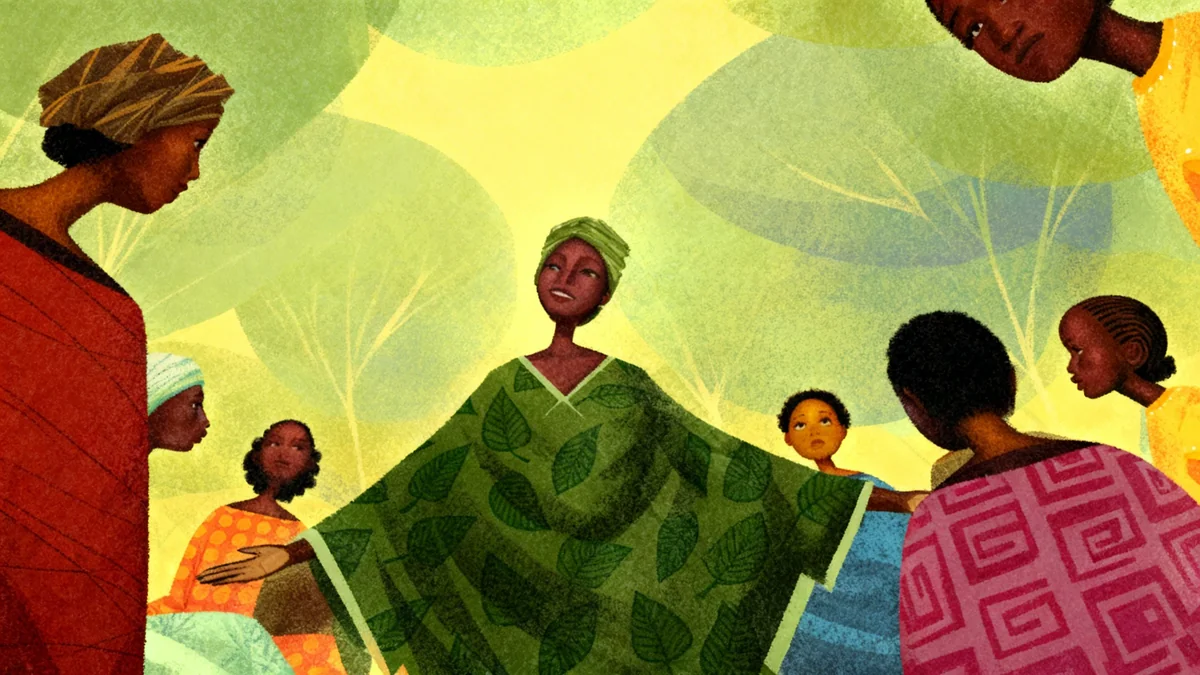Black women in the United States experience disproportionately high rates of pregnancy and infant loss, yet they often face a healthcare system and cultural landscape that fails to provide adequate space for their grief. This systemic gap highlights significant disparities in maternal healthcare and emotional support, prompting the rise of community-led initiatives designed to address these specific needs.
Key Takeaways
- Data from the CDC shows Black mothers are nearly three times more likely to die from pregnancy-related causes than white mothers.
- Black infants are more than twice as likely to die before their first birthday compared to white infants.
- Many Black women report feeling dismissed or unheard by medical professionals when expressing pain or emotional distress after a loss.
- Community organizations like Ebony Bonds in Chicago are creating culturally sensitive support systems to fill the void left by formal healthcare.
- Social media has become a vital platform for Black mothers to share their stories and find collective support, challenging traditional silence around grief.
The Scale of the Crisis in Black Maternal Health
The challenges faced by Black mothers extend far beyond the grieving process and are rooted in longstanding healthcare inequities. Statistical evidence paints a stark picture of the risks involved. According to the Centers for Disease Control and Prevention (CDC), the disparities are significant and persistent across the country.
These statistics are not just numbers; they represent a public health crisis that affects families and communities. The higher rates of mortality for both mothers and infants signal systemic issues within the healthcare system, including implicit bias, unequal access to quality care, and a failure to address the specific health risks faced by Black women.
Disparities by the Numbers
According to the most recent CDC data, the maternal mortality rate for Black women is approximately 69.9 deaths per 100,000 live births, which is 2.6 times the rate for white women. The infant mortality rate for Black infants is 10.6 deaths per 1,000 live births, more than double the rate for non-Hispanic white infants.
When pregnancy loss occurs, the emotional toll is compounded by these systemic failures. Women who have already navigated a high-risk pregnancy are often met with clinical responses that lack empathy and fail to acknowledge the profound sense of loss, leaving them to process their grief in isolation.
Navigating Grief Amidst Medical Indifference
For many Black women who experience miscarriage or stillbirth, the interaction with the healthcare system can be a source of secondary trauma. Personal accounts frequently describe encounters where emotional pain is minimized and condolences are delivered in a perfunctory manner. Instead of receiving resources for mental health support, they are often told to simply "try again."
This dismissal can invalidate the grieving process, making mothers feel as though their loss is not significant. The experience of losing a child, at any stage of pregnancy, is a deeply personal and significant event. The lack of institutional recognition for this pain can prolong and complicate the healing journey.
The Impact of Cultural Expectations
Within many Black communities, there is a strong cultural emphasis on resilience and strength. While this has been a vital survival mechanism against historical and ongoing adversity, it can also create pressure to suppress emotions like grief. Phrases intended to be comforting, such as "God has a plan," can sometimes be interpreted as a directive to move on quickly, rather than an invitation to mourn openly.
This combination of medical indifference and cultural pressure to remain strong can create a profound sense of isolation. It reinforces the idea that a mother's grief is a private burden to be carried alone, rather than a communal experience deserving of support and validation.
Community-Led Organizations Offer a Lifeline
In response to these systemic gaps, grassroots organizations are emerging to provide the culturally competent care that Black families need. One such example is Ebony Bonds, a Chicago-based support network founded by Rachel Burrell and Gina Reeves. The organization was created specifically to help Black parents navigate the complexities of pregnancy and infant loss.
According to a profile in The Guardian, Ebony Bonds offers a range of services tailored to the community it serves, including:
- Culturally sensitive therapy sessions
- Community healing circles
- Memorial events to honor lost children
- Storytelling and song as therapeutic tools
Organizations like Ebony Bonds are critical because they create a space where Black grief is understood, validated, and honored. They recognize that healing is not just about individual therapy but about collective support and shared testimony. By centering the experiences of Black parents, they provide what the formal healthcare system often cannot: a sense of belonging and recognition.
The Rise of Digital Sanctuaries
In the absence of sufficient institutional support, many Black mothers have turned to social media to find community and share their stories. Digital platforms have become informal, yet powerful, spaces for mourning and connection. Through hashtags, online groups, and personal posts, women are breaking the silence that has long surrounded pregnancy loss.
Hashtags as a Form of Resistance
Hashtags like #BlackMamasHeal, #SayTheirNamesToo, and the more general #1in4 (referencing the statistic that one in four pregnancies ends in miscarriage) have created digital archives of love and loss. On these platforms, women share ultrasound photos, write letters to their babies, and connect with others who have similar experiences.
"When a Black mother says her baby’s name in public, she’s refusing invisibility. She’s demanding to be seen—not just as strong, but as human." - Khalilah Archie, in a personal essay on the topic.
These online acts of remembrance are a form of resistance. They challenge a society and a medical system that has often rendered Black women's pain invisible. By sharing their grief publicly, these mothers are asserting their right to mourn and demanding that their children's lives, however brief, be acknowledged.
A Call for Systemic Change
While community networks and digital spaces provide essential support, they do not absolve the healthcare system of its responsibility. Addressing the crisis requires systemic change, including anti-bias training for medical professionals, improved mental health resources for grieving parents, and policies aimed at reducing the stark racial disparities in maternal and infant mortality.
The stories of loss and the data from public health institutions both point to the same conclusion: Black mothers deserve to be treated with dignity, empathy, and care. Creating space for their grief is not just a matter of compassion; it is a critical component of maternal health and a fundamental issue of human rights. Their experiences demand not silence, but a commitment to tangible, systemic action.





